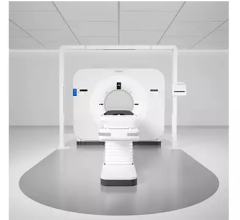
A UK National Cancer Research Institute trial led from The University of Manchester and the Christie NHS Foundation Trust has suggested that in patients with early stage Hodgkin lymphoma, the late effects of radiotherapy could be reduced by using a scan to determine those who actually need it.
In a paper published in the New England Journal of Medicine, the scientists show that a positron-emission tomography (PET) scan immediately after treatment with chemotherapy can identify patients who have a very good outcome without additional radiotherapy.
Hodgkin lymphoma is a cancer that develops in the lymphatic system, which is a network of vessels and glands spread throughout the body. Around 1,900 people a year, many of whom are teenagers and young adults, are diagnosed in the UK.
The current standard treatment is for all Hodgkin lymphoma patients to receive chemotherapy, followed by radiotherapy. However, this radiotherapy comes with undesirable late effects, such as cardiovascular disease and other cancers – despite the fact that they have already been cured of Hodgkin lymphoma.
The 602 patients who agreed to take part in the ‘RAPID’ trial had a PET scan performed after their chemotherapy. Patients who tested positive received radiotherapy. Those who tested negative were divided into two groups – one group of 211 patients received no further treatment, while the other group of 209 had the standard radiotherapy.
After three years of regular check-ups, the proportion of patients who were alive and free of disease was 94.6 percent in the radiotherapy group, and 90.8 percent in the group which hadn’t received further treatment.
Lead researcher, Professor John Radford, is based at The University of Manchester’s Institute of Cancer Sciences and the Christie NHS Foundation Trust. He said: “This research is an important step forward. The results of RAPID show that in early stage Hodgkin lymphoma radiotherapy after initial chemotherapy marginally reduces the recurrence rate, but this is bought at the expense of exposing to radiation all patients with negative PET findings, most of whom are already cured.”
Despite the findings from this study the researchers stress that a longer follow-up period is needed in order to determine whether this approach will ultimately lead to fewer late side-effects and improved overall survival.
The research was funded by Leukaemia & Lymphoma Research. Matt Kaiser, M.D., head of research at the charity, said: “This groundbreaking clinical trial shows that, by using scans to predict an individual's risk of relapse, many patients can remain disease-free with just chemotherapy alone. Radiotherapy can cause a range of long-term problems like heart disease and hard-to-treat second cancers. As many Hodgkin lymphoma patients are relatively young, it is particularly important to avoid using intensive treatment when it is unnecessary.”


 December 11, 2025
December 11, 2025 









